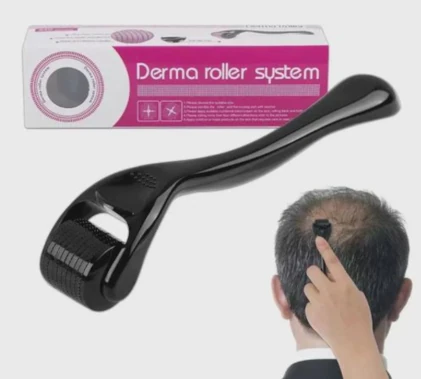Making the Cut: Identifying the Right Time for Hair Transplantation and Its Implications
“It’s not just your hairstyle that defines you, but the confidence that emanates from within when you feel truly happy with how you look.”

Every day, millions of people across the globe grapple with the emotional and physical effects of hair loss. It is a frustrating experience, often leading to a dip in self-esteem. While solutions like medication, dietary changes, and natural remedies exist, hair transplantation often emerges as the most intriguing option. This post aims to delve into the ins and outs of hair transplantation, guiding you on when it might be necessary, the pros and cons, and more.
When Do You Need Hair Transplantation?
Hair transplantation is typically suited for people with resistance towards non-surgical treatments or those who seek permanent solutions. But exactly when do you pull the trigger on hair transplantation?
Clinical Hair Loss Conditions
Primarily, hair transplantation comes as a resolution for specific hair loss conditions like Alopecia Areata and Androgenetic Alopecia. If you have either of these conditions, which have hereditary roots, consider discussing hair transplantation with your dermatologist.
Pattern Baldness
Pattern baldness, characterized by the receding hairline and thinning crown, might warrant a hair transplant. This usually emerges from genetics but can also be a result of aging.
Cosmetic Purposes
Given advancements in technology and techniques, hair transplants are not exclusive to those with hair loss conditions. Some people might prefer denser hair or want to alter their hairlines for cosmetic reasons.
It’s important to note that a proper diagnosis from a qualified practitioner should precede your decision. They can provide a comprehensive perspective on your condition and suitability for a hair transplant surgery.
Understanding the Pros and Cons of Hair Transplantation
Like every major decision, delving into the pros and cons is crucial before opting for hair transplantation.
Pros
The benefits of hair transplantation encompass both physical and emotional elements.
- Permanent Solution: One of the principal advantages of hair transplantation is its long-lasting nature. After the initial shedding phase post-surgery, the transplanted hair begins to grow naturally, permanently covering the bald spots.
- Improved Appearance: Hair transplantation can help restore your previous look, contributing to a positive self-image and increased confidence.
- Minimal Maintenance: Once the surgery is done and the recovery period is over, the transplanted hair requires as much care as your natural hair—no special shampoos or chemicals needed.
- Cost-Effective: Contrary to popular belief, when seen in the long term, hair transplantation might prove to be a cost-effective solution over continuous expenditures on medication or topical treatments.
Cons
Hair transplantation, while appealing, also has its set of drawbacks that should be taken into account.
- Costly Upfront: While proven cost-effective in the long run, the upfront costs of a transplant can be quite heavy on the pocket.
- Scarring: Regardless of the transplantation technique used, some scarring is inevitable. Some people might not be comfortable with this aspect.
- Success Not Guaranteed: Depending on the individual’s health, the surgery’s success is not always guaranteed. Not everyone might achieve the desired results.
- Takes Time to Show Results: Patience is essential. Results from a hair transplant could take anywhere from 6 to 12 months to truly become visible.

The Bottom Line
Hair transplantation can be a life-changing procedure, empowering individuals to regain their confidence and attain a sense of normalcy. However, given the cost and the variations in outcome, it’s crucial to consult with an expert to make an informed decision. Remember, hair or no hair, you are still uniquely you. Beauty is more than what’s seen on the surface—it’s about embracing who you are—bald patches and all.
“Remember, the goal isn’t perfection—it’s feeling better about yourself. Be gentle with yourself and accept your beauty as it is.”







Great article…very helpful!